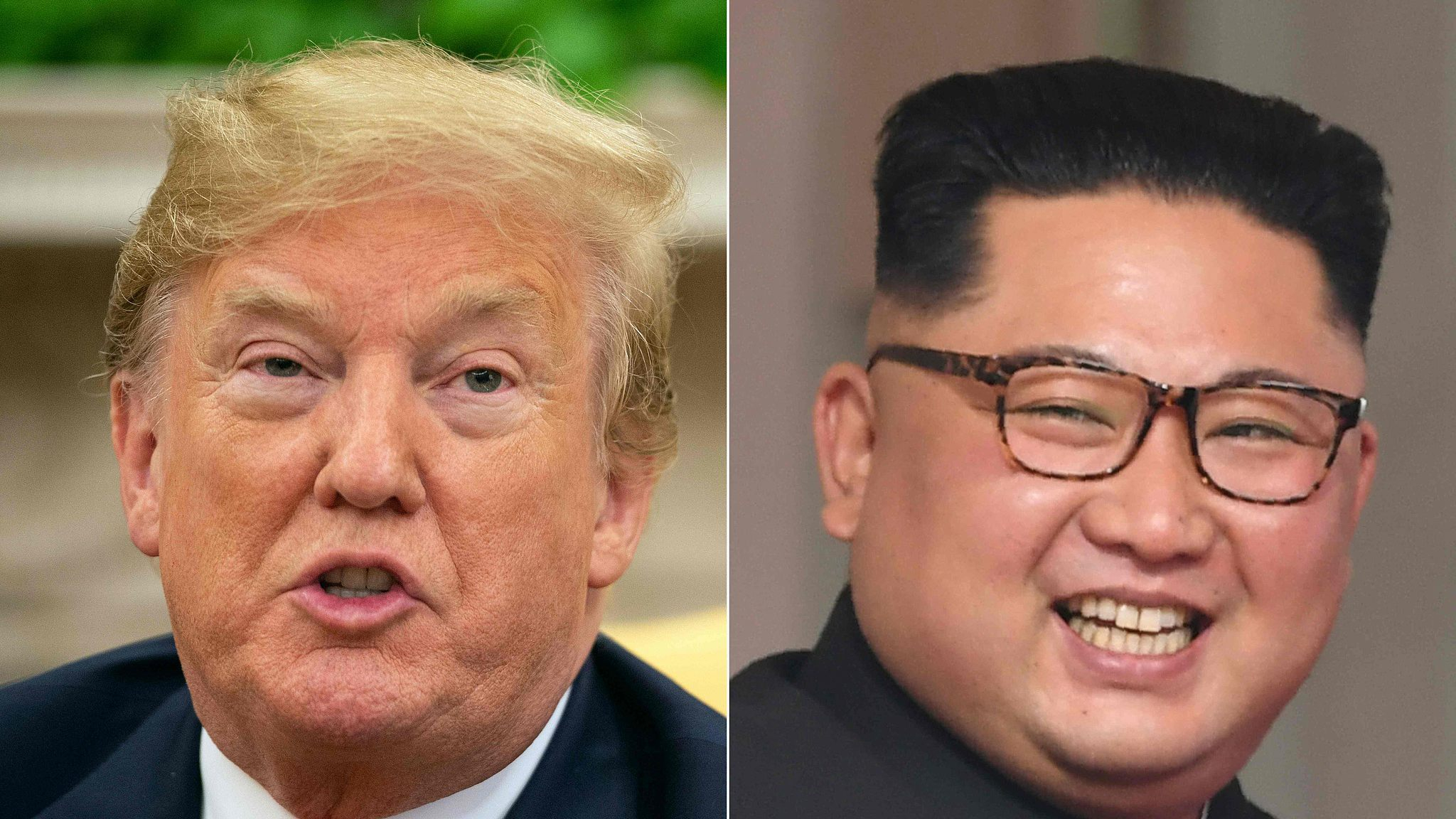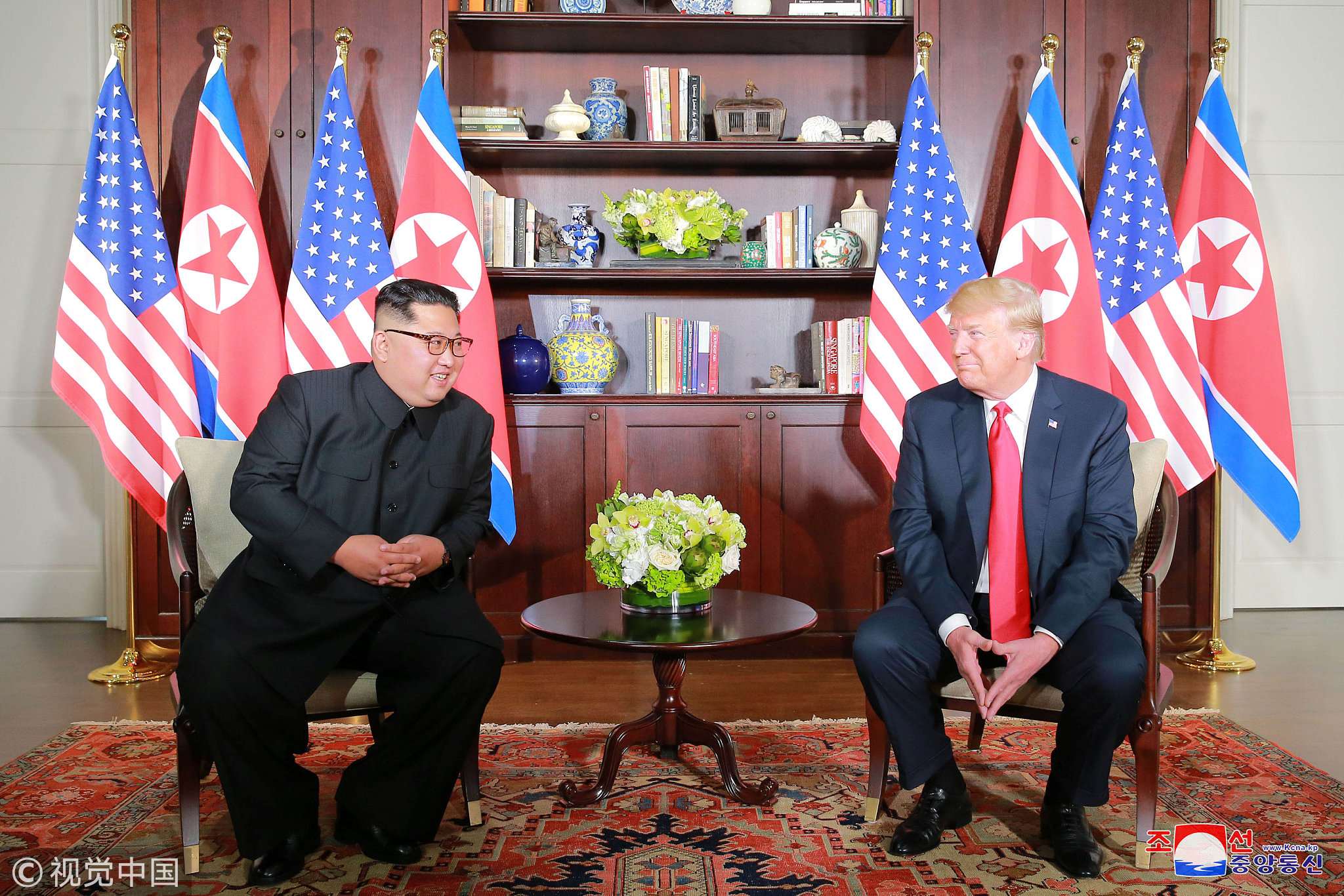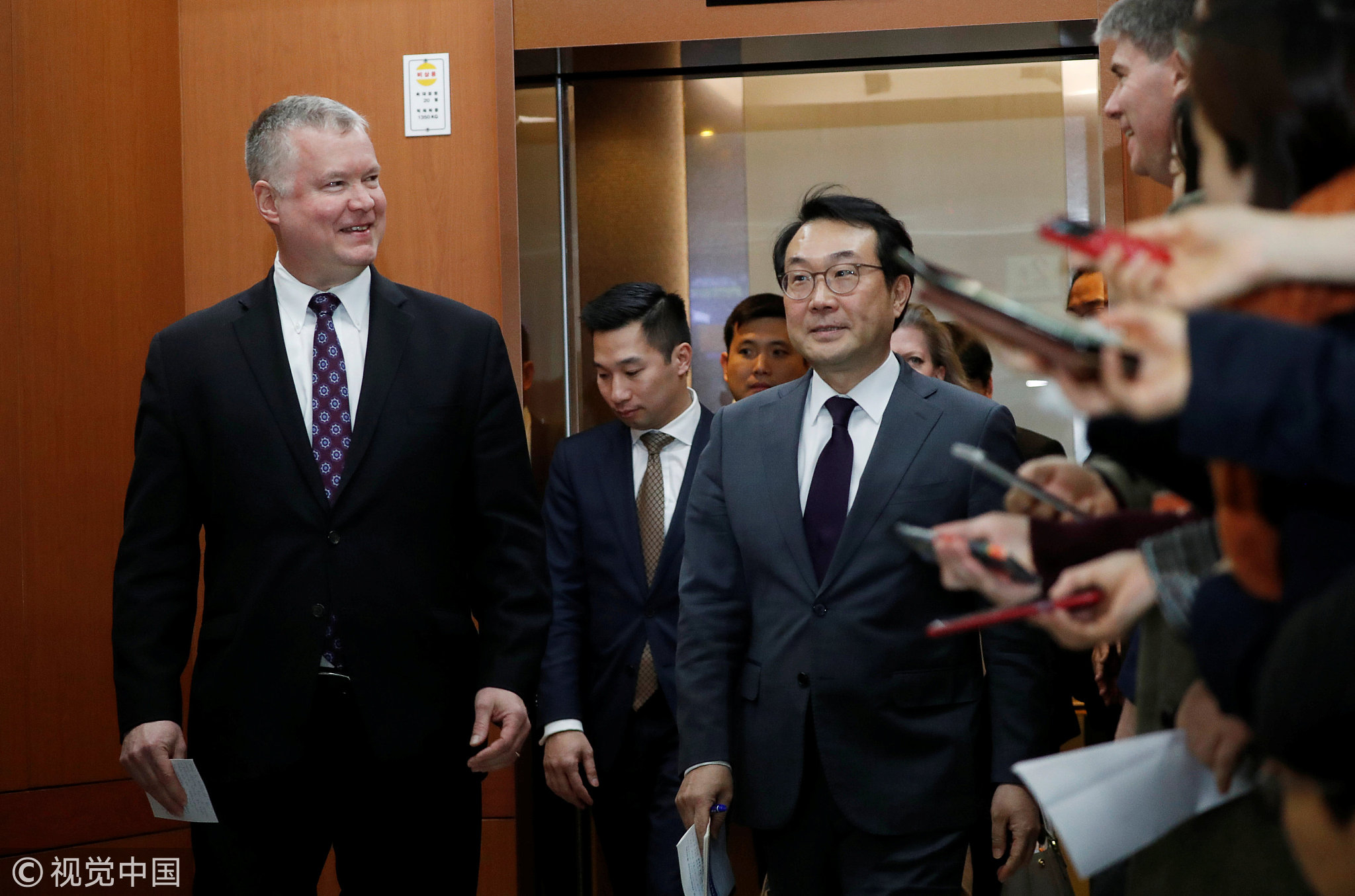
Opinions
16:11, 21-Dec-2018
Opinion: DPRK won't capitulate to U.S. demands
Updated
15:11, 24-Dec-2018
Tom Fowdy

Editor's Note: Tom Fowdy is a UK-based political analyst. The article reflects the author's views, and not necessarily those of CGTN.
On Thursday, the Korean Central News Agency (KCNA), state media outlet of the Democratic People's Republic of Korea (DPRK), hit out at the United States stating that the country will not engage in denuclearization until Washington removes its own “nuclear threat” to the country from the entirety of the Korean Peninsula.
The straight-talking statement from Pyongyang comes just a day after Washington yet again set out that there would be no sanctions relief until the process of denuclearization is completed, which is a large sticking point in nuclear negotiations between the two sides.
Still, such remarks from the DPRK should not be a surprise to anyone. It is what every analyst of the subject has known and pointed out for a long time. The demand for complete unilateral denuclearization by the country on Washington's terms is simply not realistic. As long as this stance continues to constitute the core of America's demands, we can expect minimal progress to be made.
It is important to understand the DPRK's perspective on the nuclear issue in an objective light. The western mainstream media, as well as the United States, enjoy painting Pyongyang's actions in the light of megalomania. According to their narratives, Kim Jong Un is merely a caricature pantomime villain hell-bent on world domination and destruction via nuclear weaponry.

U.S. President Donald Trump and DPRK leader Kim Jong Un before their bilateral meeting at the Capella Hotel on Sentosa island in Singapore, June 12, 2018. /VCG Photo
U.S. President Donald Trump and DPRK leader Kim Jong Un before their bilateral meeting at the Capella Hotel on Sentosa island in Singapore, June 12, 2018. /VCG Photo
Therefore, as they see it, the country's nuclear actions are simply evil, irrational and serve no logical or justifying purpose. The idea that United States policy may be responsible for influencing the country's actions and choices on this matter is often always dismissed out of hand and not taken seriously. Such understandings are problematic. Pyongyang's decision to go nuclear is not incomprehensible savagery, but a rational means of attaining leverage as a relatively weak state faced against larger and more domineering powers around it.
So it is said, the Korean peninsula is but a “shrimp among whales.” Born in these circumstances and in the legacy of Japanese colonialism, it has been conditioned primarily as a state which places priority on avoiding foreign domination at all costs. Thus, the country's primary political ideology, Juche, talks of independence. The ideology demands that the DPRK stubbornly maintain its ideological, political and economic distinctiveness from the entire world and instead struggle as “an independent” agent to be the “master of its own destiny.”
Whilst such a strategy has caused the country's economic conditions to suffer, it is the primary logic of its nuclear program, which has in turn been a reaction to changes in the international system which saw the rise of American unipolarity after 1991. By developing something as dangerous and powerful as nuclear weapons, Pyongyang has been able to attain diplomatic leverage in negotiations with Washington and other larger powers. Nuclear weapons shield it from outside demands, allowing the regime to maintain the status quo and prevent others from imposing their will upon it.

The U.S. special representative for DPRK Stephen Biegun (L) and his Republic of Korea (ROK) counterpart Lee Do-hoon leave after their meeting at the foreign ministry in Seoul, December 21, 2018. /VCG Photo
The U.S. special representative for DPRK Stephen Biegun (L) and his Republic of Korea (ROK) counterpart Lee Do-hoon leave after their meeting at the foreign ministry in Seoul, December 21, 2018. /VCG Photo
Because Juche ideology teaches the value of struggle, the DPRK has been more than willing to pay a price accordingly to the maintenance of its position, meaning it will not capitulate purely for the sake of sanctions relief. Rather than be changed, the DPRK instead seeks to hold out and secure concessions on its own terms alone. Hence, when President Trump pressed the country more aggressively over its nuclear program, the DPRK responded in turn with more testing in a bid to up its capability as fast as possible to secure ground in what would be eventual talks.
Thus, when it comes to the matter of denuclearization, there are immediate repercussions. Washington's policy demands that Pyongyang unconditionally surrender its entire nuclear program simply to achieve sanctions relief. This would involve a capitulation of the country to U.S. terms. So what would this constitute? A forfeit of its entire leverage to a hostile country, giving up the only meaningful military capability it has and placing itself in a precarious position. In the DPRK's view, to do so would be ultimately naive, as Washington could easily turn hostile again in the future.
As a result, negotiations on this matter can only progress if adherence is given to Pyongyang's terms and interests and the strategic position of the state is not weakened. If the DPRK is to make big concessions to Washington, then it must likewise receive big concessions as well, not just, of course, mere sanctions relief. Part of the most recent statement emphasized what is described as “the denuclearization of the Korean peninsula.” From their perspective, this is what they agreed to in negotiations with the U.S, not whatSecretary of State Pompeo insists on.
Although it seems vague and confusing, this is the point. It is in effect denuclearization on the basis of unspecific terms and conditions which the U.S. must be willing to meet. It is the invitation to participate in a reciprocal process, not a cave in to unilateral demands. If that kind of denuclearization is to take place, then it must be mirrored by a parallel reduction in the military threat by the United States, an abstention of the use of any nuclear assets from Korea as well, and likely a permanent relinquishing of all military options against the DPRK regime. In any scenario, there is no way the DPRK will unilaterally act.
In a nutshell, the DPRK has made it quite clear either way what has been known and spoken all along. There will simply not be a unilateral capitulation to American demands. The country expects a process, one which also gives adherence to its own terms and interests. Otherwise, there will simply be no deal. In this light, the latest statement shouldn't come as a surprise.
(If you want to contribute and have specific expertise, please contact us at opinions@cgtn.com.)

SITEMAP
Copyright © 2018 CGTN. Beijing ICP prepared NO.16065310-3
Copyright © 2018 CGTN. Beijing ICP prepared NO.16065310-3